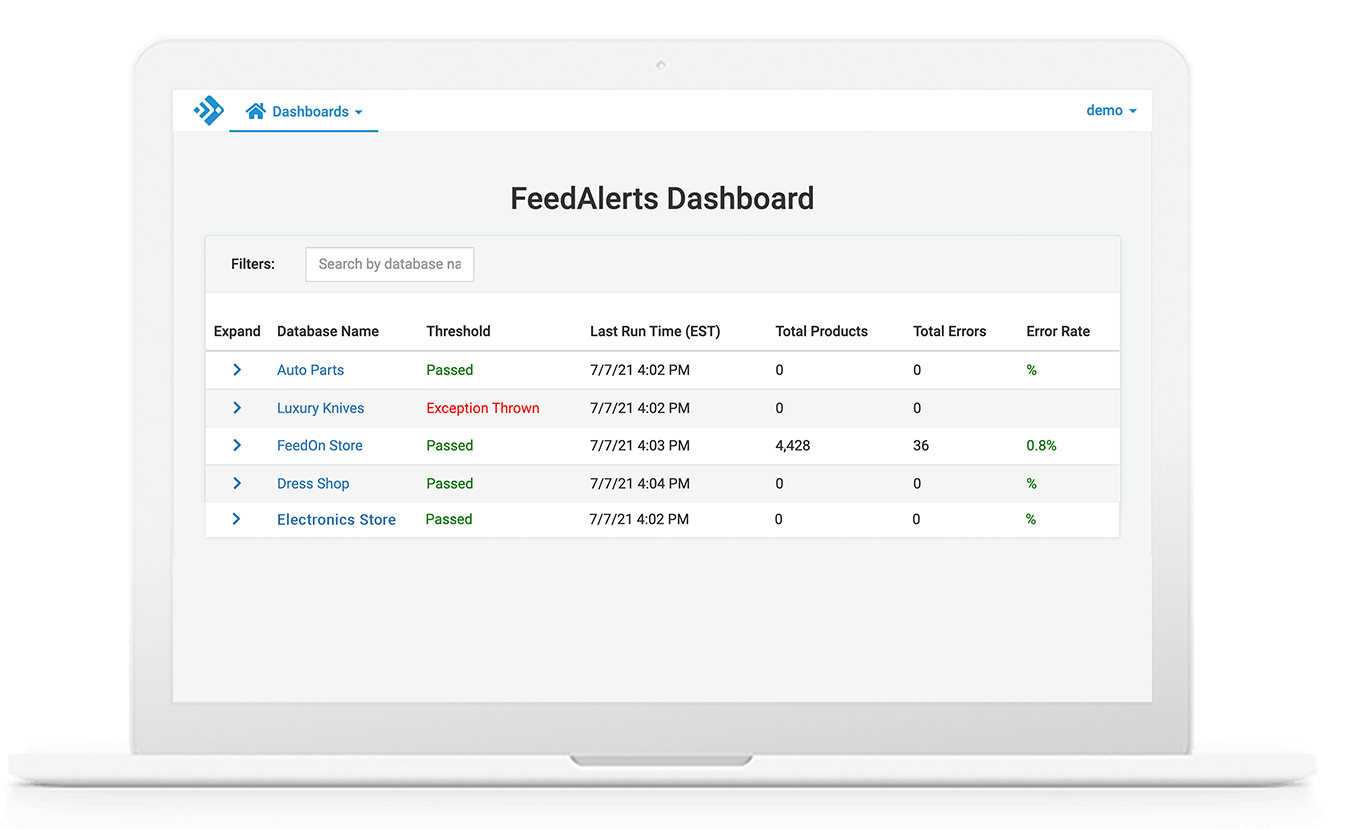Alternatives to Adobe Commerce
1. Feedonomics by BigCommerce
+Pros
- AI categorization superiority with over 99% accuracy and 17x faster processing compared to rule-based competitors.
- Enterprise scalability with documented success managing 1.3M+ SKUs across multiple countries.
- Full-service support model with 24/7 availability and 1-hour urgent response times.
- Proven customer outcomes with significant ROI uplift and revenue growth.
- Data governance capabilities with automatic export pausing during pricing and inventory anomalies.
-Cons
- Pricing accessibility constraints with entry pricing starting at $1,200+ monthly versus competitors like DataFeedWatch at $59/month.
- Feature breadth constraints with DataFeedWatch's broader channel coverage (2,000+ vs. 300+) and VersaFeed's integrated bidding analytics capabilities.
- Implementation complexity requiring 12-16 weeks for enterprise deployments with cross-functional teams.
- UI complexity consistently cited by customers requiring learning curves.
- Performance thresholds limiting effectiveness for smaller operations, requiring minimum 50,000 monthly sessions for reliable AI personalization.
One highlighted feature and why it's amazing
Feedonomics' core differentiator, delivering over 99% accuracy in product categorization while processing 17x faster than traditional rule-based approaches.

Another highlighted feature of why it’s amazing
Supports complex, multi-channel operations. The platform successfully manages 1.3M+ SKUs across multiple countries and channels as demonstrated in Dell's 17-country implementation.
2. Debutify
+Pros
- Comprehensive widget ecosystem with 60+ built-in conversion optimization tools
- Proven conversion impact with documented case studies showing 37% conversion improvements (JenniBag) and 400% sales growth (Laughing Pug Australia)
- AI-driven cart optimization and dynamic bundling capabilities
-Cons
- Enterprise scalability represents a significant constraint with B2B functionality restrictions and API access limitations
- Lacks native one-click checkout capabilities and 3D product viewers
- Meaningful customizations often require significant technical input and external developer assistance
One highlighted feature and why it's amazing
Debutify's primary differentiator lies in its 60+ built-in conversion optimization widgets that eliminate the need for multiple third-party Shopify apps.

Another highlighted feature of why it’s amazing
The platform employs AI-driven cart goal trackers that analyze user behavior to serve contextual offers and automated product bundling based on purchasing patterns and inventory analysis.
3. Salesforce Commerce Cloud
+Pros
- Einstein AI integration delivering measurable customer outcomes
- Unified B2B/B2C commerce capabilities providing real-time inventory synchronization
- Proven capabilities with 4.2/5 customer satisfaction based on G2 reviews
-Cons
- High investment barriers for businesses under $5M revenue
- Support quality concerns with SMB customers citing ticket resolution delays
- Implementation complexity creating risks with stock discrepancies during first-month operations
One highlighted feature and why it's amazing
Provides predictive analytics, automated merchandising, and personalized recommendations across the customer journey .

Another highlighted feature of why it’s amazing
Enables headless commerce flexibility with reported front-end deployment time improvements compared to monolithic platforms .
Other Alternatives
Fontify for Shopify
Squarespace Commerce
How We Researched This Guide
About This Guide: This comprehensive analysis is based on extensive competitive intelligence and real-world implementation data from leading AI vendors. StayModern updates this guide quarterly to reflect market developments and vendor performance changes.
296+ verified sources per analysis including official documentation, customer reviews, analyst reports, and industry publications.
- • Vendor documentation & whitepapers
- • Customer testimonials & case studies
- • Third-party analyst assessments
- • Industry benchmarking reports
Standardized assessment framework across 8 key dimensions for objective comparison.
- • Technology capabilities & architecture
- • Market position & customer evidence
- • Implementation experience & support
- • Pricing value & competitive position
Research is refreshed every 90 days to capture market changes and new vendor capabilities.
- • New product releases & features
- • Market positioning changes
- • Customer feedback integration
- • Competitive landscape shifts
Every claim is source-linked with direct citations to original materials for verification.
- • Clickable citation links
- • Original source attribution
- • Date stamps for currency
- • Quality score validation
Analysis follows systematic research protocols with consistent evaluation frameworks.
- • Standardized assessment criteria
- • Multi-source verification process
- • Consistent evaluation methodology
- • Quality assurance protocols
Buyer-focused analysis with transparent methodology and factual accuracy commitment.
- • Objective comparative analysis
- • Transparent research methodology
- • Factual accuracy commitment
- • Continuous quality improvement
Quality Commitment: If you find any inaccuracies in our analysis on this page, please contact us at research@staymodern.ai. We're committed to maintaining the highest standards of research integrity and will investigate and correct any issues promptly.